
Abstract: This article traces the evolution of MoonPads, a social benefit company founded by the author, weaving a narrative that spans personal experiences, academic pursuits, and a commitment to sustainability, social equity, and menstrual justice. The article explores the interconnected journey from childhood influences, through academic endeavors in sustainability education, to the entrepreneurial realm, shedding light on the intersection of gender equity and environmental sustainability. MoonPads emerged as a response to period poverty, seeking to provide accessible and eco-friendly menstrual products while challenging societal stigmas surrounding menstruation.
Continue Reading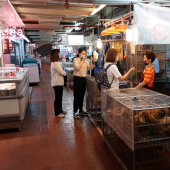
Abstract: This article provides a case study of place-based sustainability education on the use of plastic bags in a wet market in Hong Kong. We organised two field trips and engaged 20 students in conducting both quantitative and qualitative research in the wet market to examine single-use plastic consumption. Our research has found that at least 1 million plastic bag is consumed on a daily basis in all the wet markets in the city of Hong Kong. Qualitatively, we found that some of the vendors may use plastic bags as a sale strategy and to engage with customers in conversations. In contrast to the conventional schooling that promote sustainability or plastic reduction in a very abstract sense, the place-based education we attempted aims to critically rethink the concept and knowledge of sustainability in ways that also empathize with the local tradition, and remain critical of modern corporate branding, and modernization discourse. The paper ends with a discussion on reflecting plastic use in traditional wet markets in contrast with chained supermarket shifting to more plastic pre-packages.
Continue Reading
Abstract: After 20 plus years as a sustainability educator, the author had one of those lie-awake-at-night-staring-at-the-ceiling experiences where she faced some hard questions about the state of the world. In this article, describes her subsequent journey investigating the role of listening in shifting to a life-sustaining society and her Ph.D. research into how to support listening across differences to address complex social-ecological challenges.
Continue ReadingAbstract: In 2008 astronauts aboard the International Space Station captured an image of sunlight as it passed through the Earth’s thin atmosphere, described as the thin blue line of “all that stands between life on Earth and the cold, dark void of space.” At the center of sustainability education is a discourse of climate change and life’s demise on the planet. In this short article, the contributing role of the United Nations University’s Regional Centres of Expertise (RCEs) for sustainability education is explored with respect to community-based climate change adaptation, notably through RCE Dhaka (Bangladesh) as an example of the challenges and opportunities for climate change adaptation in one of the most heavily populated megacities of the Global South.
Continue Reading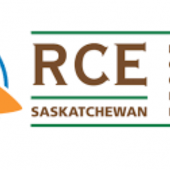
Abstract: Three decades ago Julius Nyerere (1990) wrote Challenge to the South. In response to the legacy of colonialism, Nyerere challenged the nations of the Global South to advance their development and to free their people. These concerns are as relevant today as they were in the 1990s. Established for the United Nations Decade of Education Sustainable Development in 2005, there are now over 175 Regional Centres of Expertise (RCEs) on Education for sustainable Development (ESD). This paper offers a case study of RCEs worldwide with a particular focus on challenges, and responses, including a focus on the select Sustainable Development Goals (SDGs) of poverty and health. Further, an account is given of RCEs which have attended to the recognition of Indigenous and traditional ways of knowing.
Continue Reading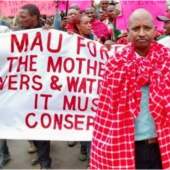
Abstract: This article posits that Maasai Indigenous activists’ call to save Kenya’s Mau Forest Water Tower for its ability to protect downstream water security has emerged as an environmental-policy microcosm illustrative of globally surging interest in such Nature-Based Solutions (NBS). Through an analysis of the Mau Forest issue, a series of United Nations Development Programme case studies, and increasing inclusion of NBS for water at recent global policy events such as the United Nations General Assembly and World Economic Forum, this article suggests that a new water infrastructure policy paradigm appears poised to increase implementation of NBS-informed by Indigenous and Traditional Ecological Knowledge (ITEK). The potential of this paradigm shift is illustrated by the North American Indigenous Mi’kmaq concept of Two-Eyed Seeing, which encourages the synthesis of solutions from both western-emanating Scientific Ecological Knowledge (SEK) and ITEK on a path toward positive social-ecological outcomes.
Continue ReadingABSTRACT: Sustainability and sustainable development have become one of the dominant topics of discussion among individuals, institutions, companies and universities in response to any global issues with regard to climate change. Many universities including Universiti Sains Malaysia (USM) have taken the initiative to instil sustainability element in its programme offered to its prospective student. USM aims to pioneer in sustainability area and become the reference point with regard to sustainability in Malaysia. In this paper, we provide the background of our USM and its goals towards becoming the sustainability-led university in Malaysia. We also introduce the tool that we have developed to help in calculating the percentage of sustainability content in any document. We utilize the tool to help us in investigating whether sustainability element is fully instilled in Mathematics programme offered in School of Mathematics in USM. We also provide our recommendation and future works to further strengthen this study in the future.
Continue ReadingAbstract: India has compulsory teaching and learning of Environmental Education at all levels of formal education. This was mandated through a Supreme Court directive. This study was conducted using a survey instrument that was used as a proxy of sustainability literacy. The instrument had open-ended questions to gauge the respondent’s perspectives, close ended knowledge-based questions, statements to understand attitudes and their awareness of eco-labelling/certification. The target group of study was the entire batch of 90 students (15 Female and 75 Male) that had joined the postgraduate programme in 2014. The students came with about of year of work experience. The major background was engineering and science with only eight percent with commerce background. All were found to be high achievers in their previous education in school and graduation.
Content analysis of the open ended question showed that 24 percent of the students agreed that economic development at the cost of environment is a short term solution, followed by 16 percent each saying that there is a need to have a balance or economic development should be at the least environmental cost. About seven percent said that economic profit can improve the environment and there is no option left if we need economic development. Only six percent putting comfort over the environment. Although the attitude was very positive, about 62 percent of the students were not able to articulate the difference between the quality of life and standard of living. 75 percent of the respondents supported the compulsory CSR act. 71 percent were in favour of extended producer responsibility. There seems to be a limited understanding of sustainable development and equates it to environmental conservation as any lay person who is informed by mass media. 72 percent did not understand the term Green Washing. The awareness was found to be moderate. Profit maximisation was the understanding as the goal of a business. Nearly half of them were of the opinion that consumers will not pay for environmentally friendly products. Although a high of 89 percent said that eco-labelling has an influence on consumer behaviour, very few of them were aware of eco-labels. Almost all agreed that polluters should pay 67 percent of them also believe that environmental clearances are an impediment to economic growth and 64 percent believe that privatisation leads to better utilisation of resources.
The study shows a pro environment attitude but at the same time a limited understanding of the depth of issues and only the economic centric perspective of sustainable development. Only 16 percent gave some hint of social dimension to sustainable development. Awareness of HDI and GDP was high but connection to quality of life was missing. The environment was high on priority as 24 percent of the students agreed that economic development at the cost of environment is a short term solution, followed by 16 percent each saying that there is a need to have a balance or economic development should be at the least environmental cost. There seems to be a limited understanding of sustainable development and equates it to environmental conservation as any lay person who is informed by mass media.
Also it was found that students were influenced by common business perspective being projected in Indian media. Business is becoming a major driver of sustainable development with increasing production and consumption along with population as a major reason for environmental degradation. It is recommended that social and environment be part of ethical framework of business education. It would be useful if details sustainability literacy assessments are done to inform the business management curriculum for the need to include environmental /sustainability management. The impact of undergraduate discipline was found to influence awareness and perception and hence it is important that the management curriculum removes the gap in sustainability literacy amongst students.
Abstract: The concept of a Green School is contested, negotiable, and complex, and this study considers stakeholders’ perspectives of this concept. A total of 21 stakeholders (principals, teachers, and parents) from three award-winning green preschools in three different societies were interviewed to discern their understanding of the notion of “green school”. The award-winning green schools were located in Bali (a developing region in Indonesia, a developing Eastern country), in Berkeley (a developed city in the United States, a developed Western country), and in Hong Kong (a developed city in a China, that that acts as a meeting point of East and West). They were selected as they are considered to be the pioneers in this field in their respected regions. Semi-structured interviews were conducted with principals, teachers, and parents at the sites over a 10-month-period. Three concepts related to the Green School, namely Green Education, Green School, and Green Building, were explored. The stakeholders were asked about their preferences in relation to having children educated inside a Green Building or receiving education utilizing a Green Curriculum. Results indicated that stakeholders’ perceptions about the Green School concept were inconsistent. However, they were aligned with the ‘green’ message that each school tries to convey. Stakeholders, regardless of their cultures, agreed consistently that they preferred preschools implement a Green Curriculum over occupying a Green Building. Implications and future directions for research on Green Schools are discussed.
This case study shares a unique educational experience that combined sustainability and design education with international partnerships that sought to investigate and visually analyze relationships between housing design and water infrastructure in both Pittsburgh, PA (USA) and urban centers of Indonesia. This project built upon an existing foundation of international relationships between faculty and institutions within a consortium framework. The project used a pre-course and a faculty-led student trip to establish relationships among faculty and students based in the United States (US) and Indonesia and to determine preliminary shared research goals to be built upon for future research collaborations that can attain a deeper and longer-term relationship. Students who participated in these courses refined their visual communication skills, gained a valuable global perspective on urban water management, were exposed to participatory photography as a research tool, and were strongly affected by their cultural experiences in Indonesia. Peer work between US and Indonesian students provided opportunities for students to exchange ideas and perceptions about the observed environment, which are influenced by their familiarity and unfamiliarity with the setting. The experience of this project can serve as a primer for the sustainability educator who is interested in interdisciplinary and international educational endeavors.
Continue ReadingAbstract: Is it important to educate the media on sustainability? This paper debates the need for sustainability education to be nurtured among media practitioners in Malaysia. Media play a vital role in educating society in three main areas of sustainability including environment, economy, and social justice. In this paper, six media practitioners from two local Malaysian printed media organizations, The Star and Utusan Malaysia, were interviewed to gauge their understanding on sustainability education, perceptions on their pivotal role in sustainability education, and the challenges they face in the process of educating society about sustainability issues. The findings of this study show that most Malaysian media practitioners displayed a clear understanding about sustainability education and they also realized their responsibility for not only informing but also educating society about sustainability issues and the importance of sustainable lifestyles. The ultimate challenge the media faces in terms of sustainability education comes from the media organizations themselves, such as the existence of gatekeepers who control the news. Overall, this study demonstrates that the Malaysian media’s involvement in sustainability education is no longer a myth. We hope that this study may provide direction in sustainability education not only among the Malaysian printed media, but also for developing and Southeast Asian countries, and the rest of the world.
Continue ReadingAbstract:
This paper describes a role-playing, negotiation “game” based on the Xayaburi Dam in Laos. We have used this activity in our graduate programs as a tool for bringing to life the complexities of decision-making around natural resources, economic development, and sustainability. Over the past several years of using the game in the classroom, we have found it to be an effective means of exposing students to the kinds of opportunities and constraints that different stakeholders face as well as the kinds of communication and negotiation tactics they might use to influence outcomes. We provide background on the real-world situation on which we based the fictional scenario for the game and discuss the learning outcomes we have observed.
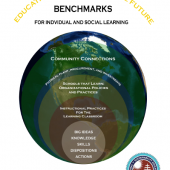
This document is a provisional draft that has emerged out of an initial “State of the Field” issue and database, published in JSE in 2014 and a follow-up conference in Winter of 2015.
Jaimie Cloud of the Cloud Institute has been the lead organizer and author of this document. See the opening pages for the large number of additional contributors.
A process for comment and revision will be announced during Spring/summer 2016.
Continue Reading
Too much of education, especially following the Western Enlightenment model and its increased use of scientific, quantifiable metrics, has seemed to completely forget that love and emotional intelligence have everything to do with what and how well the human child learns. In a globalizing society facing shared environmental and social crises of existential proportions, this forgotten understanding is fatal to real hopes of education for sustainability and healthy human and planetary life. Love is simply too critical an emotion to understand and incorporate into education, and it has been too long left out in the cold. But cold it has been for the human mind focusing on only rational/objective and emotion-denying forms of learning and intelligence, creating minds unmoved by the thus un-felt facts of an increasingly globally warming and more confused world.
Continue Reading
The stories we tell shape our view of ourselves and the path we take through this time of collective awakening and global turning. We have the ability to consciously choose narratives that offer realistic beacons of hope to guide our way through the Great Transition. To achieve authentic and lasting reconciliation as the foundation for our future, we require the power of love and compassion as a practical basis for organizing human affairs.
Continue Reading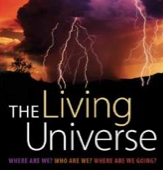
In The Living Universe: Where are We, Who are We, and Where are We Going, Duane Elgin presents a powerfully compelling argument that the most fundamental challenge facing humanity during this time of crisis is to visualize a future of great opportunity and that the foundational story guiding the reality people create on Earth is whether the universe is alive and to be loved and nurtured or dead and to be feared and consumed. This article provides a review of this powerful book with an eye to the connection between love and sustainability.
Continue Reading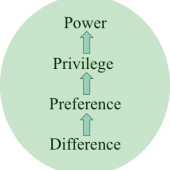
This paper explores the intrinsic but often weakly developed links between sustainability and issues of diversity, power, and privilege. It offers a systems-oriented conceptual framework for exploring and understanding how issues of diversity, power and privilege operate in social-ecological systems. This framework can be used as a learning tool with a wide array of audiences (higher education, organizational development, adult learners) and educational contexts (including but not limited to sustainability education programming).
Continue ReadingUndergraduate education majors were enrolled in a project based learning methods course in spring 2012. As a culmination, they prepared five year plans to promote environmental stewardship in primary public schools in Bahrain. Since all students plan to eventually teach science in the primary schools, it is hoped they will be able to implement at least some of their plan and foster environmentally friendly habits that last for the lifetime of their students.
Continue Reading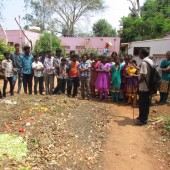
India is challenged by the nexus of environmental degradation and economic growth amidst the paradoxical coexistence of poverty and affluence in their multifarious dimensions. These challenges are directly linked with the conservation and maintenance of the life supporting systems such as land, water, air, and biological diversity. The major causes of environmental degradation are population growth, industrialisation, changes in consumption patterns, and poverty threatening the dynamic equilibrium that could exist between people and ecosystems. In an effort to address these issues, environmental education for sustainable development (EESD) is emerging as an important approach to encourage students to conserve and protect the natural environment in their schools and in their neighbourhoods.
Continue Reading
This conceptual article examines how teaching and learning has changed and continues to change as a result of the increase in cultural diversity in post-secondary classrooms. It focuses on how students’ and instructors’ culture and traditions impact the teaching and learning experience in culturally diverse post-secondary settings. Providing evidence from theoretical perspectives, this review assesses the need for and the potentially transformative nature of education that is sustainable.
English may be the lingua franca on North American university campuses, as well as on many campuses around the world, but since students and instructors come from many different backgrounds, just because English is the predominant language does not necessarily mean that education based on Western principles is the only way to do education. International students and instructors come from countries where education may be conducted differently and since the North American university system requires learning to be demonstrated in certain ways, it puts students that come from different systems at a disadvantage. Therefore it would seem that North American universities could benefit from the tenets of culturally sensitive teaching that Gay (2000) suggests as comprehensive, multidimensional, empowering, transforming, and emancipatory.
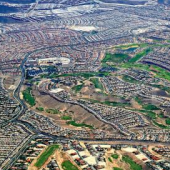
Like sprawl itself, writing about sprawl is scattered in a vast multidisciplinary literature. In this paper we provide a map of what is increasingly known about urban sprawl in emerging literature. This review of progress includes four main parts—definition, data, methods of measurement, and environmental consequences of urban sprawl. The focus of this literature review is to determine whether the aforementioned parts are elements of a connected system in which progress in any one part reflects in others, thereby enhancing knowledge of urban sprawl’s environmental consequences through a cross-fertilization with progress in how sprawl is defined, data are used, and phenomena are measured. We conclude with a discussion of areas of further research that surmounts the shortcomings of a disconnected, epistemic (knowledge) system of definitions, data, and methods, and points toward an explanation of urban sprawl’s environmental consequences. The implications for the education of urban sustainability are noted.
Continue Reading
As sustainability educators and communication professionals consider various strategies to engage audiences with regard to household energy use, one option now seemingly available is to leverage social networks by encouraging people to share information with others they know. At the same time, we currently do not know enough about the potential spread of energy-related information in this fashion. Whether, when, or how people share energy-related information with peers or family members are crucial questions, for example. Using national survey data from U.S. residents (n=816), we predicted energy information sharing as a function of objective energy knowledge (measured using a factual energy knowledge index), perceived energy understanding, and demographic variables. Our analyses underscored the importance of assessing not only factual energy knowledge but also perceived understanding, as both are equally predictive of energy information sharing frequency (β=.11, p<.05, for objective knowledge and β=.11, p<.01 for perceived understanding). Number of children also predicted energy information sharing, β=.11, p<.01. We discuss the implications of these results for informal energy education efforts in the 21st century.
Continue Reading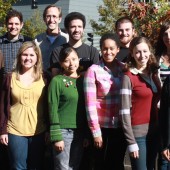
This article discusses the evolution and work of Brown University’s Climate and Development Lab (CDL). As leaders of the CDL, we engaged students in experiential education while attending the United Nations climate change negotiations in Cancun, Mexico in 2010, and in Durban, South Africa in 2011. Simultaneously, we collaborated with students to provide relevant and timely research and public scholarship oriented by the goal of advancing global justice in international climate change policy. Here we offer a conceptualization of our pedagogy for the CDL, which is a synthesis of two guiding principles: ‘engaged education’ and ‘global just sustainability’. We discuss the ways in which we organized the CDL in relation to this pedagogy and everyday logistics, and reflect upon our accomplishments and the challenges that we faced. We argue that while there are areas where we can improve upon our practice, the potential of this type of learning is considerable, and can be complementary to producing scholarly outputs that contribute to a more just and sustainable world.
Continue Reading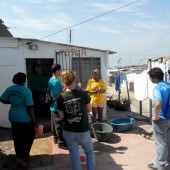
It is widely acknowledged that the sustainability challenges facing the world require new approaches to teaching and learning. At the community level, however, sustainability priorities are context specific, so prescriptions of what and how to teach for sustainability are limiting. In higher education, one innovative approach to sustainability education that acknowledges the limits of conventional coursework involves courses based on “shared action learning” – a process in which students, faculty, and community sponsors share learning experiences while working on sustainability projects for a specific community. Shared Action Learning can be applied in any community context near or far from campus ranging from the very local campus community to distant settlements across the globe. This paper describes the processes, opportunities and challenges of shared action learning through five stages: (1) project impetus, (2) contextual research and project planning, (3) community engagement and project refinement, (4) action, and (5) reflection and reporting. The roles of students, faculty, sponsors, and communities throughout the semester-long shared action learning project are explored through two examples – a course at Clark University in Worcester, MA that focuses on SAL within the college campus community and a Worcester Polytechnic Institute program through which students work on projects with partners in informal settlements in Cape Town, South Africa.
Continue Reading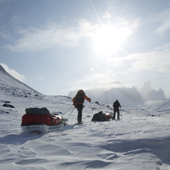
Adventure has been incorporated into sustainability education in a variety of ways, including through outdoor education and, more recently, through technology-enhanced learning. Technology has, for example, expanded opportunities for experiential learning through adventure as well as allowing learners to journey virtually along with explorers and scientists to the far-reaches of the world. This paper offers an overview of how adventure has traditionally been employed in both formal and informal education, discusses the differences between adventure education and adventure learning, shares research conducted on the role of adventure in the GoNorth! Adventure Learning Series, and advances suggestions for how adventure might be employed in sustainability education using distance, online, and mobile learning. The researchers propose the user-driven adventure learning environment (UDALE) as one model that educators and designers can draw from in both formal and informal learning settings as a means to fuse adventure, technology, and sustainability education in a pedagogically meaningful way.
Continue Reading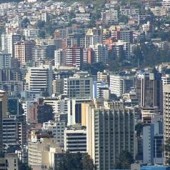
Two developing strands of a multidisciplinary literature provided an impetus for this paper: 1) the emergence of new regionalism, new urbanism, and smart codes that inform urban planning and design principles and practices for environmental sustainability, and 2) the diffusion of telecommunication and multi-media technologies that facilitate implementation of pedagogic principles in the “classroom.” The emerging urban planning and design paradigms anchor environmental sustainability issues firmly in place and space with an emphasis on the physical form of cities and regions, which, due to induced vehicular travel, is linked to greenhouse gases with consequences for climate change. Innovations that enhance learning in the classroom or the community increasingly embed and diffuse telecommunication and multimedia technologies. The intersections of urban sustainability, planning, pedagogy, and technology are briefly reviewed in this paper. It turns out that urban planning and design paradigms—particularly those with an emphasis on systemic knowledge, holistic views of both the natural and built environments, collaboration, communication, and reflective practice—synergize with environmental sustainability goals. Furthermore, these very features are ingredients for effective education for urban sustainability, particularly in conjunction with advanced telecommunication and multimedia technologies.
Continue Reading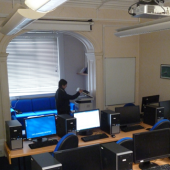
This study investigated the current energy use perceptions and practices of staff and students within five buildings at the University of Sheffield, UK. A series of focus groups with staff and post-graduate representatives from these buildings explored occupant awareness of energy consumption, perceived level of control over energy use, priorities for reduction and the perceived facilitators and barriers to reduction. Overall, personal awareness and attitudes about the need to conserve energy, the perceived actions and opinions of other users (including University authorities) and perceptions of control over the ease and opportunity to reduce energy consumption were perceived by occupants to relate to whether they would intend to conserve energy in University buildings. Recommendations for encouraging energy conservation focus on engendering greater occupant responsibility for conservation by providing a clear conservation message, participating in energy reduction schemes and providing greater energy usage information. Few papers have investigated occupant understanding of energy use in UK University and Higher Education buildings, despite large reduction targets in the sector. This paper recognises the importance that staff and student engagement will have in the successful achievement of these targets and explores their insights and perceptions.
Continue Reading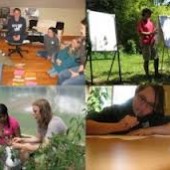
To live up to UNESCO’s definition of a sustainable development education that empowers youth with the knowledge, attitudes, motivations, commitments, and skills to solve and prevent the world’s total environmental problems, youth must be able to find meaning in the curriculum based in their own experiences and expanded through shared group experiences. An environmental-based experiential curriculum with a positive development focus can help youth reclaim their learning process and reconnect with their communities. However, without critical analysis, students, especially marginalized students, cannot develop the tools and competencies to truly understand their environment and their place within it. Linking environmental and experiential education with critical theory provides students the opportunity to develop their leadership and gain the social and cultural literacy skills needed to come in from the margins.
Continue Reading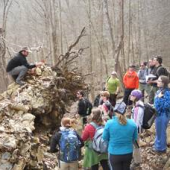
In this article I articulate what it means to understand curriculum as bioregional text. I utilize a theoretical mode of inquiry to explicate the values of bioregional education while integrating the discussion into the reconceptualized field of Curriculum Studies. The discussion addresses the value of direct experience, in our bioregion, and explains the significant contribution that can be drawn from developing a clearer understanding of our bioregional autobiography.
Continue Reading
This report describes a unique technique for presenting an introduction to sustainability science course that is both required for sustainability science majors at a large Mid-Atlantic state university and a general education non-laboratory science course. The World Scientists’ Warning to Humanity, released by the Union of Concerned Scientists in the late 1990s, serves and an indictment of humanity. The course mimics a trial as it proceeds from the indictment through an arraignment, pre-trial, trial, verdict, and sentencing with students acting both as the accused and the jury.
Continue Reading
The field study (or short-term study abroad) creates a successful hybrid of study abroad and field research. These short-term educational adventures (edu-ventures) give environmental or sustainability students opportunities to gain practical knowledge while traveling domestically or overseas. In addition, it presents the opportunity for both faculty and students to extend the traditional Boyer model of scholarship, a reputable professoriate model, by developing continuity. The field study fulfills the four pedagogical goals of the Boyer model: creating research opportunities (discovery); breaking down the silos of traditional academic departments (integration); acting as consultants on-site (application); and educating students beyond the faculty members’ expertise (teaching). In addition, these field studies fulfill a fifth goal: building relationships and transgressing time (continuity). The development of this Boyer Plus model from a field-study experience serves as a tremendous tool for colleges, universities and professors to build the opportunities and necessary pedagogical skills for both traditional and non-traditional students.
Continue Reading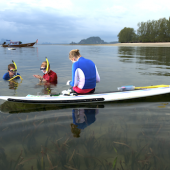
Understanding how we live (culture) and its impact on where we live (ecology) is one of the key issues facing sustainability and sustainability education. The International Sustainable Development Studies has developed a study abroad program for American college and university students in Thailand, “People, Ecology and Development” to address these issues through experiential studies of sustainability. Courses each semester focus on understanding the broader challenges of sustainable development through experiential studies of specific landscapes and cultures in the villages, mountains, coasts and islands throughout Thailand. This paper examines the key components of ISDSI’s programs, and provides a framework for understanding how these principles can be used to teach about sustainability within the broader context of issues of social justice and global learning more generally. Key components of the ISDSI approach include: community based learning — working with local communities to design courses that reflect community needs, knowledge and struggles; place-based learning — examining both the culture and ecology of specific locations, watersheds, bioregions, island archipelagos, etc.; experiential learning — learning through direct examination of and participation in the cultural practices (lifeways, norms, etc.) and study of ecological components (forests, coral reefs, etc.); and expedition based — learning during focused expeditions through the landscapes being studied, usually human powered (backpacking through remote mountain forests, sea kayaking between islands, etc.).
Continue Reading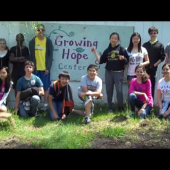
This article presents a case study of a middle school project based on the experience of two teachers and an administrator. The project gives 8th grade students an opportunity to make a difference in the world through a Sustainability Action Project. In this article you will read the rationale behind this project. You will get an overview of and a timeline for its implementation over the course of a complete academic year. We will provide you with some examples of projects as well as refer you to our school webpage where you can view these projects in more detail. Finally, we have included appendices of several of the materials we provide to our students. We hope that you will clearly see what sets this learning experience apart from other sustainability projects, and that you will be able to adopt a similar project in your school.
Continue Reading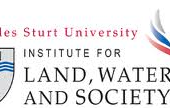
PDF: Rafferty and Laird, Spring 2013 Abstract: This paper explores the observations and perceptions of school children as they engage with nature through place based environmental experiences. The paper reports on two projects, one based in the USA and the other in Australia, designed to promote understanding of sustainability through outdoor […]
Continue Reading
In a very cohesive and convincing argument, Randall Amster asks us to look at the other side of the well-worn coin that links environmental degradation and resource despoliation to conflict and war. Instead, argues Amster, conflict zones have been shown to be appropriate sites for the creation of peace parks and other similar initiatives, where they can be turned into regions of enhanced sustainability—in every sense of the word, including environmental, social, and economic.
Continue Reading
In this deeply cohesive and fundamentally geographic argument, Helena Norberg-Hodge brings an impressive array of sustainability issues under a single guiding rubric for educating and changing society—the need for a shift from globalised systems to local practice. While every point in her argument is backed with interesting details—including her fascinating experiences with the Himalayan Ladakhi people—she is consistent in bringing us back to valuing localisation and yet measured in her prescription which calls for gradual shifts, not radical and potentially harmful jumps, towards localisation.
Continue Reading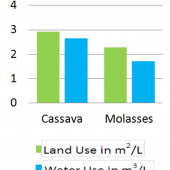
: Thailand is facing a serious problem with their reliance on foreign oil imports. With nearly 90% of their crude oil, gasoline, and diesel being imported, the country is searching for ways to improve their national energy security by lowering their demand for foreign oil. Bioethanol from cassava and molasses are two promising technologies that could help Thailand work toward their goal of energy security. However, debate is still on going to determine which feedstock should be chosen to power the country’s bioethanol industry. This teaching case study presents the background and sustainability analysis for both cassava and molasses based bioethanol as well as teaching notes and discussion questions. It is intended for high school seniors or college undergraduates in courses that address sustainability-related issues and technologies.
Continue Reading
Teaching sustainability invariably involves teaching about energy – its use, its sources, its
environmental impacts, and its social implications. This paper explores how one renewable
energy alternative – biogas – is adapted and applied across scale and culture. Biogas is made by
capturing the methane released during anaerobic digestion of organic matter such as manure,
sewage, and food waste. In Nepal, biogas is a household scale technology used to create a
cooking fuel that replaces firewood and improves both environmental and human health. In the
United States, biogas is used as part of large-scale waste management systems for livestock,
wastewater treatment, and landfills to create electricity for on-site use and for sale into electric
grids. In Sweden, biogas is used as part of a regional effort to reduce greenhouse gas emissions
and fossil fuel usage by using locally generated biogas for district heating, electricity, and
vehicular fuel. By comparing these three cases, we gain insight into how one technology is
adapted across diverse needs and from household to regional scales in the pursuit of more
sustainable energy practices. Such an exercise can be an asset in the classroom to teach students
about the importance and relevance of place-based solutions that address diverse cultural and
economic realities.
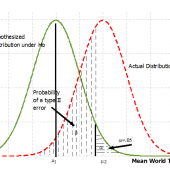
Dave Tomkins and Panagiotis Tsigaris focus their fine analytical stats skills on how to not to make the wrong kind of error…yes, that should be the right logic…regarding global warming. They elegantly lay out the math behind what we all know intuitively…nothing is to be lost from taking precautions regarding global warming, or avoiding Type II statistical error, which comes, not from assuming that humans caused global warming, even when we didn’t, but rather being unable to prove that humans cause global warming, when in fact we are causing it. They present the statistics in the context of a course case study and make it clear that we have no reason to wait on the data since the potential for this type of error is already with us and the actions to be taken are probably beneficial in other areas as well.
Continue Reading
Sponsoring the Journal of Sustainability Education The Journal of Sustainability Education is actively seeking partners, sponsors, and donors to collaborate on moving the field of sustainability education outward and deeper. The Journal is a premiere publication with dynamic content: a blend of peer reviewed and timely interviews and media pieces that draws 700,000 web views per year. […]
Continue Reading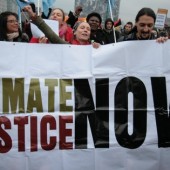
In this insightful review of Brian Tokar’s book, Randall Amster hails the work as a hopeful response to climate change that, rather than playing off of apocalyptic scenarios, envisions a future where society is re-structured not only in technological and economical terms, but also towards a more socially equitable way of life.
Continue Reading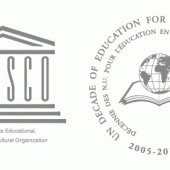
The Education for Sustainable Development (ESD) community, argues Robert Bray, is shy to confront controversy. In this quick review of three controversial issues—population control, the role of science, and limits to growth—he quickly points out how important it is to embrace controversy as a way to arrive at sound policy.
Continue Reading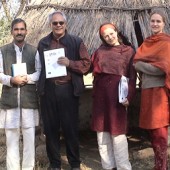
Pramod Prajuli takes down the ten streams of his life journey that brought him to Prescott Arizona and a life dedicated to sustainability education.
Continue Reading
Kathy Lamborn shares her profound wilderness moments with us, much like she does with her middle school students in the classroom. But she goes on to make the case that the value of wilderness is not just for its own sake but for its power to elicit these moments and thereby bring us “to our knees with reverence,” helping us to recognize the call for a just and compassionate—“sustainable”—life.